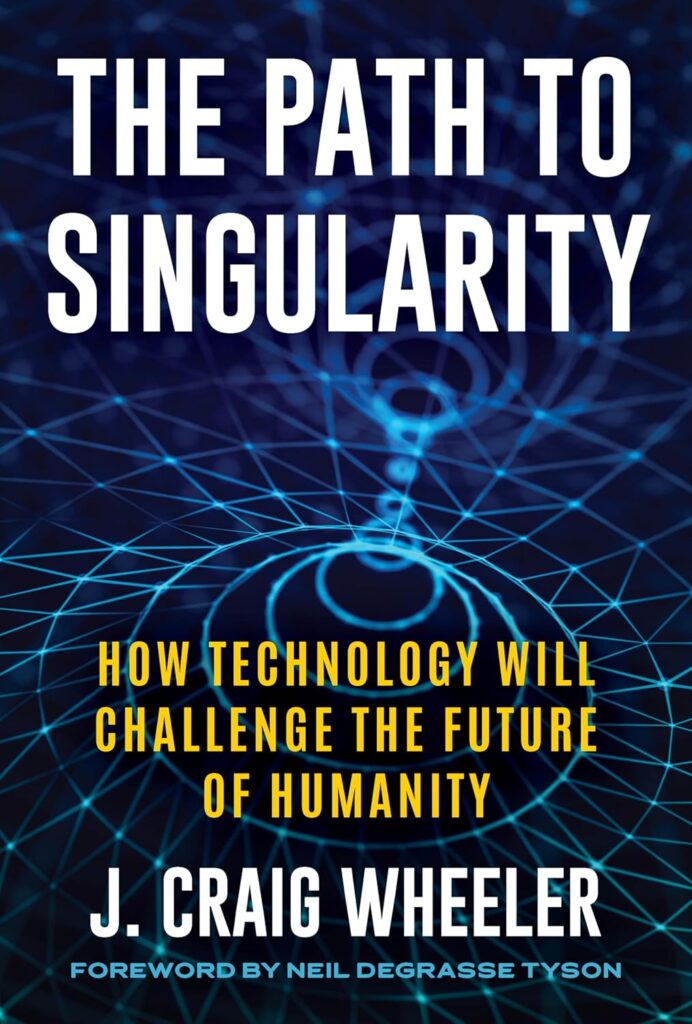The Path to Singularity: How Technology Will Challenge the Future of Humanity by J. Craig Wheeler
When tuned into the day’s news, we’re treated to the perspectives of full-time commentators opining on culture, domestic politics, geo-politics, and technology. They tend to have backgrounds in journalism or in communication. Others might also be trained in history, politics, or law, and maybe business. On social media platforms, strongly-voiced opinions flow from everyone, no matter their background — including the neighbors who think and vote just the way you do, and the neighbors who don’t.

The scarcity of scientists in this 24/7 news cycle might leave the viewer to suppose that scientists have nothing to say about world events. Or they might suppose the views of scientists are not as important as the views of media pundits. In the United States, science and engineering professions employ about six million people. That’s one in fifty Americans, but almost all of them cluster in academia, and in private and government labs. Statistically, that means most people cannot claim a scientist or engineer as a friend, and some people will live their entire lives having never met a scientist.
Meanwhile, practically everything we value about modern civilization — our health, wealth, and security, as well as our systems of transportation, communication, and information technologies, — all derive from innovations in science, technology, engineering, and mathematics.
Scientists are human, and generally susceptible to the full range of human emotions and biases, just like everybody else. They live and walk among us. They read books, watch TV, and listen to music. Scientists carry opinions and vote. Good scientists are also self-aware of how bias can influence their conclusions. They invest special effort to minimize that influence, including peer review, which accounts for its high value in the scientific enterprise.
Scientists are also deep-thinkers. From the beginning of one’s training, especially in the physical sciences, the mind is honed to analyze, interpret, and draw conclusions from relevant data, guided by the universal laws of physics and the attendant mathematical tools that wield the power to grant statistical integrity to that which is real in the world. These are pathways to objective truths, independent of what feels good or what we need to be true based on our culture, politics, or religion.
Seems to me, these are just the people you want commenting on the endless, future-leaning, breaking-news topics we face today, such as energy, automation, robotics, quantum computing, artificial intelligence, gene editing, synthetic biology. And scientists surely wield views on the socioeconomic disruptions these moving frontiers will unleash on civilization.
The world is long overdue for a peek at the state of society and what its future looks like through the lens of a scientist. And when that scientist is also an astrophysicist, you can guarantee the perspectives shared will be as deep and as vast as the universe itself.
When such an occasion presents itself to the reader, run, don’t walk to experience it. The views are enlightening, insightful, and occasionally mind-blowing. You will never see the world the same way. And that’s a good thing.


